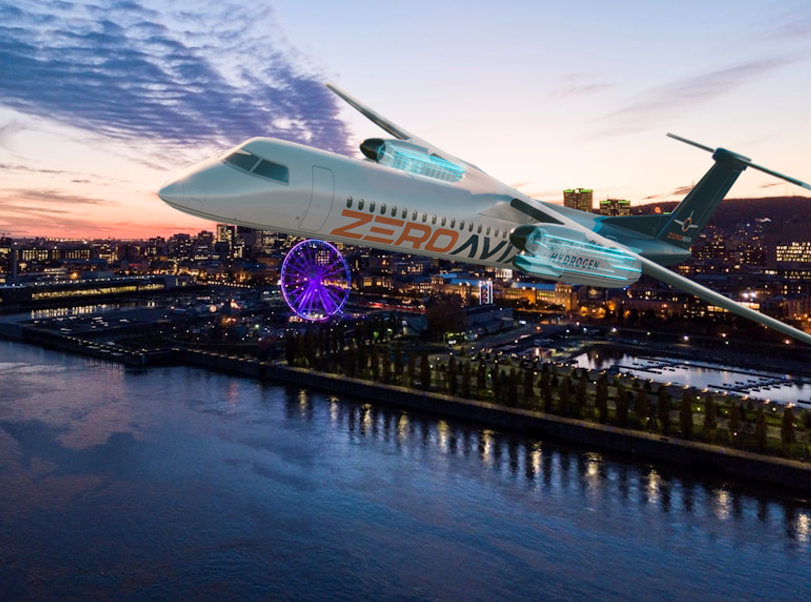
This is the first time that a feasibility study of this magnitude has taken place in Canada to pioneer hydrogen for aviation, with the three airports. It reflects the partners' shared ambition to use their respective expertise to support the decarbonization of the aviation industry (ICAO, ATAG and IATA) and to achieve net zero carbon emissions by 2050.
Air transport is prime in the country because of its wide-spread geography. Not only does it connect to international cities but is also an important means of supplying critical connectivity domestically. Commercial flights in Canada enable the flows of goods, investments, people and ideas that are the fundamental drivers of economic growth.
Air transport in Canada is forecast to grow by 51% in the next 20 years under the "current trends" scenario. This would result in an additional 39.8 million passenger journeys by 2037. (Source IATA Economics)
This cooperation will provide better understanding of hydrogen aircraft concepts and operations, supply, infrastructure and refueling needs at airports, with the goal of developing the hydrogen aviation ecosystem across the country.
“We are bringing together Canada’s largest airports, the world’s largest aircraft manufacturer and the leading innovator in decarbonized propulsion technology, in order to progress the transition to hydrogen aviation. ZeroAvia flight testing demonstrates that hydrogen-powered commercial aviation is a prospect ahead of 2030, so we need to start working hard to prepare for the hydrogen infrastructure needed to support the aviation industry and airports as they step into a new golden age of clean flight," said Val Miftakhov, Founder and CEO, ZeroAvia.
The work will also support the development of regulations and standards. Montreal is the home city of the International Civil Aviation Organization (ICAO) and collaboration is a key driver to support a global framework.
Tamara Vrooman, President and CEO at Vancouver International Airport, said, "We know when it comes to climate change, aviation isn’t the enemy, carbon is. Looking into the feasibility of airports as Hydrogen Hubs is an important step on the journey to net zero carbon emissions.
“The collaboration between Airbus, ZeroAvia and the three biggest airports in Canada will help identify the changes required in our industry and supporting ecosystem to meet carbon reduction goals.”
The use of hydrogen to power future aircraft is not only expected to significantly reduce aircraft emissions in the air, but could also help decarbonise air transport activities on the ground. In 2020, Airbus unveiled the first ZEROe concept with the ambition to bring to market the world's first hydrogen-powered commercial aircraft by 2035. The development of the corresponding technology bricks is now underway in a global Research & Technology network.
Airbus also launched the "Hydrogen Hub at Airports" program to jumpstart research into infrastructure requirements and low-carbon airport operations, across the entire value chain. To date agreements have been announced with partners and airports in ten countries including France, Germany, Italy, Japan, New Zealand, Norway, Singapore, South Korea, Sweden and the United Kingdom. ZEROe wishes to develop its hydrogen visibility and partnership network in North America. Therefore, there is a strong need to recruit partners in the region.
ZeroAvia is working to develop the hydrogen fuel ecosystem to support clean propulsion systems at airports by developing unique production, storage and dispensing technologies, and by working with airport partners to plan for hydrogen operations in the near future.
Airbus has been in Canada for 40 years with more than 4,500 people working at the 10 sites and offices of Airbus and its subsidiaries sourcing around C$2 billion annually from Canadian companies. Canada is also home of the A220 aircraft, where its main final assembly lines, pre-assembly line and main programme, engineering and customer services offices are located in Mirabel, Quebec.

